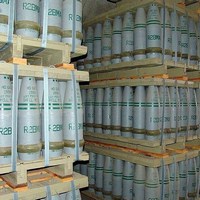Until today, last week’s G-20 summit in St. Petersburg, Russia, looked to be a bust. Although the group, whose members represent 90 percent of the world’s economy, is not supposed to have a traditional military security agenda, the impending U.S. military strike against Syria ensured that the Syrian issue would dominate deliberations. Despite efforts by U.S. President Barack Obama to convince the other leaders in attendance of the need to respond to the Syrian government’s Aug. 21 use of chemical weapons with military force, the group remained sharply divided on the issue.
China and Russia but also Brazil, India and Indonesia refused to sign a statement that even hinted at some kind of concrete response to the attack. Even U.S. allies like Germany preferred to wait for the conclusions of a U.N. inspections team before lining up behind U.S. calls for a punitive military response.
But it appears that behind the scenes the participants were laying the foundations for launching a new Syrian initiative. Yesterday, in what seemed to be an improvised aside, U.S. Secretary of State John Kerry, who Putin had called a liar in the run-up to the G-20 meeting last week, said the Syrian government could avert a strike if it placed place all its chemical weapons under international control pending their elimination. Kerry went on to express skepticism that it would do so. However, Russian Foreign Minister Sergey Lavrov immediately seized on the remarks as a potential diplomatic means of averting U.S. strikes against Syria. Syrian Foreign Minister Walid Moallem, who was in Moscow for meetings with Lavrov, welcomed the Russian proposal. U.S. President Barack Obama subsequently called the development a “modestly positive development,” and while expressing his skepticism over Syria’s willingness to follow through, seemed to put further deliberations over a strike on hold.

